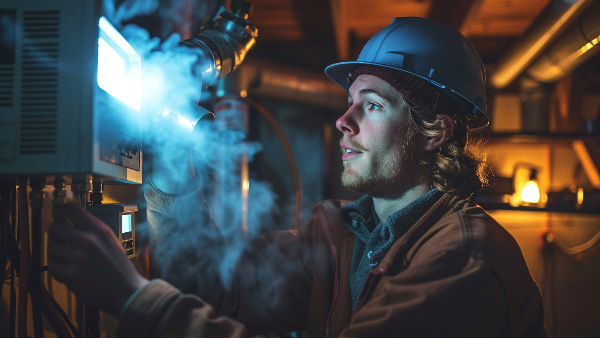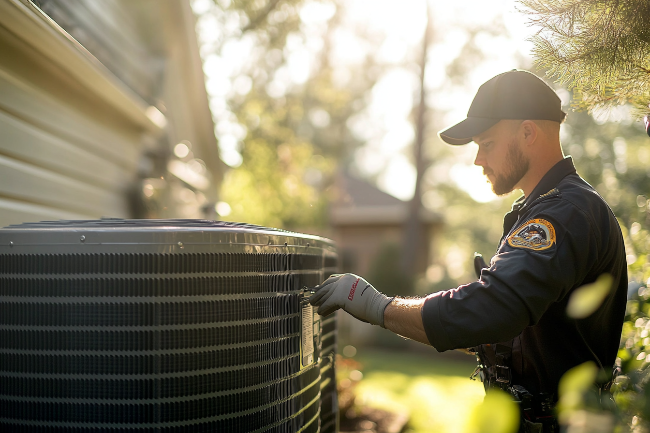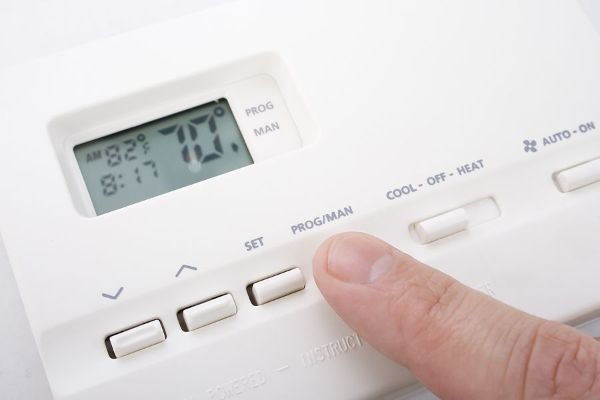GET A FREE QUOTE TODAY - (707) 228-9921
Is Your HVAC System in Trouble? 10 Signs You Need Repair Now
10 Warning Signs Your HVAC System Needs Repair Now
Your HVAC system is essential to keeping your home comfortable year-round. But like any other appliance, it can develop issues over time. Ignoring small warning signs can lead to bigger, more expensive repairs—or even a full system replacement. If you notice anything unusual, it’s best to act fast. Here are ten key signs that your HVAC system may need professional repair.
1. Unusual Noises Coming from Your System
Your HVAC system should run relatively quietly. While a low hum is normal, loud or strange noises can indicate trouble. Banging or clanking sounds may mean loose or broken components inside the unit. A squealing noise often points to a belt or motor issue that needs lubrication or replacement. Clicking or buzzing could signal electrical problems, such as a failing capacitor. If you hear any of these sounds, it’s best to call an HVAC technician before the problem worsens.
2. Weak or Uneven Airflow
When certain rooms in your home feel noticeably warmer or cooler than others, or if there’s barely any air coming from your vents, your HVAC system may not be circulating air properly. Clogged air filters, blocked or leaky ducts, or a failing blower motor can all contribute to weak airflow. Poor circulation forces your system to work harder than necessary, leading to higher energy costs and reduced comfort in your home.
3. Your Energy Bills Are Climbing
If your energy bills have unexpectedly increased, your HVAC system may not be running efficiently. Dirty air filters, a malfunctioning thermostat, or worn-out components can all cause the system to work harder than usual. Routine maintenance helps ensure it runs efficiently and keeps energy costs under control.
4. Frequent Cycling or Running Constantly
Your HVAC system should turn on and off at regular intervals to maintain the desired temperature. If it cycles too often or runs non-stop, there may be an issue with the thermostat, refrigerant levels, or even the size of your unit. A professional inspection can pinpoint the problem and prevent unnecessary wear on your system.
5. Strange or Unpleasant Odors
If your HVAC system emits odd smells, take action immediately. A burning smell may indicate overheating electrical components, while a musty odor often points to mold or mildew in the ducts. A rotten egg smell could be a gas leak, which requires immediate professional attention. Ignoring these odors can put your home’s air quality and safety at risk.
6. Excess Humidity Indoors
Your HVAC system regulates humidity, so if your home constantly feels damp or sticky, there may be an issue. A failing air conditioner, blocked drainage lines, or an improperly sized unit can cause excess moisture. Left unchecked, high humidity can lead to mold growth and an uncomfortable indoor environment.
7. Thermostat Isn’t Working Properly
A faulty thermostat can disrupt your entire HVAC system. If it fails to respond, struggles to maintain the right temperature, or causes fluctuations, wiring issues, sensor problems, or dead batteries may be to blame. In some cases, replacing an outdated thermostat with a programmable or smart model can improve efficiency and comfort.
8. Water Leaks Around the Unit
Moisture around your HVAC unit is a serious warning sign. Puddles or visible leaks could stem from a clogged condensate drain line, a refrigerant leak, or a failing evaporator coil. If left unchecked, water damage can lead to mold growth and system malfunctions. It’s best to have a technician assess leaks as soon as possible.
9. Your Home Never Reaches the Right Temperature
If your HVAC system is running but your home still feels too hot or too cold, low refrigerant levels, malfunctioning components, or poor insulation could be the cause. A professional inspection can help identify the issue and restore your home’s comfort.
10. Your HVAC System Is Over 10 Years Old
Even a well-maintained HVAC system won’t last forever. If your unit is over a decade old and frequently needs repairs, replacing it may be more cost-effective. Newer models are more energy-efficient and offer updated features that improve home comfort.
Don’t Wait—Get Your HVAC System Checked Today
Catching HVAC issues early can save you money and prevent discomfort in your home. If you’ve noticed any of these warning signs, schedule a professional inspection as soon as possible. Regular maintenance and prompt repairs keep your system running efficiently and extend its lifespan. Don’t wait until it’s too late—contact an HVAC expert today!
Comments
More Posts That Might Interest You
Take Your Home Comfort To The Next Level
Whether you need your furnace replaced or your AC repaired, we've got you covered.

Next Level Heating & Air Conditioning Inc.
© 2018 Next Level Heating & Air Conditioning. All rights reserved.
Website Design and SEO by Fitz Designz








